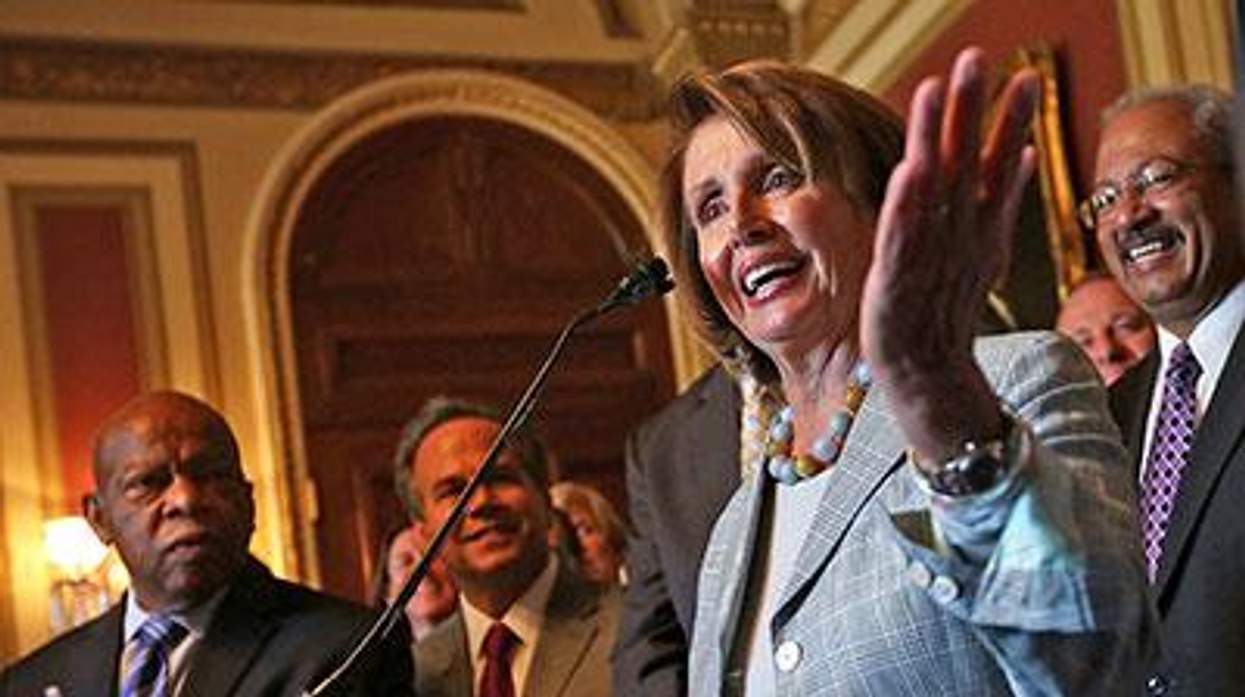The Equality Act, introduced in Congress today, would update the Civil Rights Act of 1964 -- America's primary expression of our commitment to equality in all aspects of public life -- and transform the daily lives of millions of Americans.
The LGBT community would benefit significantly, of course, from the Act's addition of express protections for LGBT people to the Civil Rights Act. But the bill would also fill gaps in the existing law by adding bans on sex discrimination where they are missing. And it would expand the scope of the entire Civil Rights Act in ways that affect everyone it covers, including communities of color.
Passing the Equality Act should be among our highest priorities.
We're at a moment of incredible progress for LGBT people. Express exclusions of LGBT people from American life are fast disappearing, including state bans on marriage for same-sex couples, the so-called Defense of Marriage Act, "don't ask, don't tell," and now, potentially, the military's ban on open service by transgender patriots.
But we need to do more than get rid of laws that require discrimination against us. We need to secure explicit nondiscrimination protections for LGBT people, the same civil rights protections that bar discrimination based on race, color, national origin, sex, and religion in American life. And we need to ensure that women are fully protected as well. The Equality Act would do just that.
The act would address the significant discrimination that LGBT people face. Corporations refuse to hire openly gay applicants; large apartment buildings falsely tell same-sex couples no apartments are available; real estate agents steer gay and transgender Americans away from certain neighborhoods; hospitals refuse to treat transgender people for basic health care needs; and schools make it impossible for gender nonconforming kids to learn.
At the same time, the promise of equality for women is still incomplete. Federal law today tolerates discrimination against women in public accommodations and by organizations using federal funds. The Act would mean that women couldn't be barred from public establishments because they are breast feeding. It would give them a legal remedy if they are harassed at a store or a hotel they patronize. The bill provides long-overdue protections to ensure that women are treated equally in all aspects of their lives.
Adding women and LGBT people to all parts of the country's primary civil rights law embeds in American culture the idea that discrimination against LGBT people and women violates our national commitment to equality. This bill will help the country to absorb LGBT people and women explicitly and fully into our conception of equality.
In several important respects, the Equality Act uplifts all Americans. In addition to places like hotels and restaurants that are already covered under the Civil Rights Act, the new legislation updates the law to ensure that other important providers of goods and services like stores and banks, as well as transportation providers, do not discriminate on the basis of any protected characteristic. This critical expansion extends to LGBT people, women, and communities of color. And the bill would make clear that the federal Religious Freedom Restoration Act, known as RFRA, can't be misused as a tool to discriminate.
Really, it is a tremendous civil rights measure.
On the LGBT rights side of things, we've got two routes to nondiscrimination protections: The first is passing new civil rights laws, such as through the Equality Act or similar state laws. The second is getting courts and administrative agencies to rule that the existing bans on sex discrimination cover discrimination based on sexual orientation and gender identity, such as last week's landmark ruling from the U.S. Equal Employment Opportunity Commission.
We need to pursue both paths vigorously. The litigation path is important because it's already providing significant protections for LGBT people all across the country, especially in the employment context, and there is great promise for broader protections as well. The legislative path is important because even if we were to succeed fully through litigation, there would still be big gaps in civil rights coverage because current laws don't ban sex discrimination in public accommodations and federal funding. That means the litigation path alone can't bring LGBT people all the way home.
In addition, the case law about whether sex discrimination bans cover LGBT people is still developing, and not all courts agree that we're covered. Finally, civil rights laws are important not just because they can provide punishment, but because they can prevent discrimination from happening in the first place. And the best way to teach businesses and all Americans that LGBT discrimination isn't OK is to put the terms sexual orientation and gender identity into the Civil Rights Act. No one should have to hire a lawyer to understand what's prohibited and what's not.
Updating America's conception of equality for all through the Equality Act should be a primary goal of our movement. That's true about the protections for LGBT people and women, as well as defending and strengthening existing protections for communities of color.
 JAMES ESSEKS is director of the American Civil Liberties Union's Lesbian Gay Bisexual & Transgender Project.
JAMES ESSEKS is director of the American Civil Liberties Union's Lesbian Gay Bisexual & Transgender Project.


 JAMES ESSEKS is director of the
JAMES ESSEKS is director of the 

































































Charlie Kirk DID say stoning gay people was the 'perfect law' — and these other heinous quotes